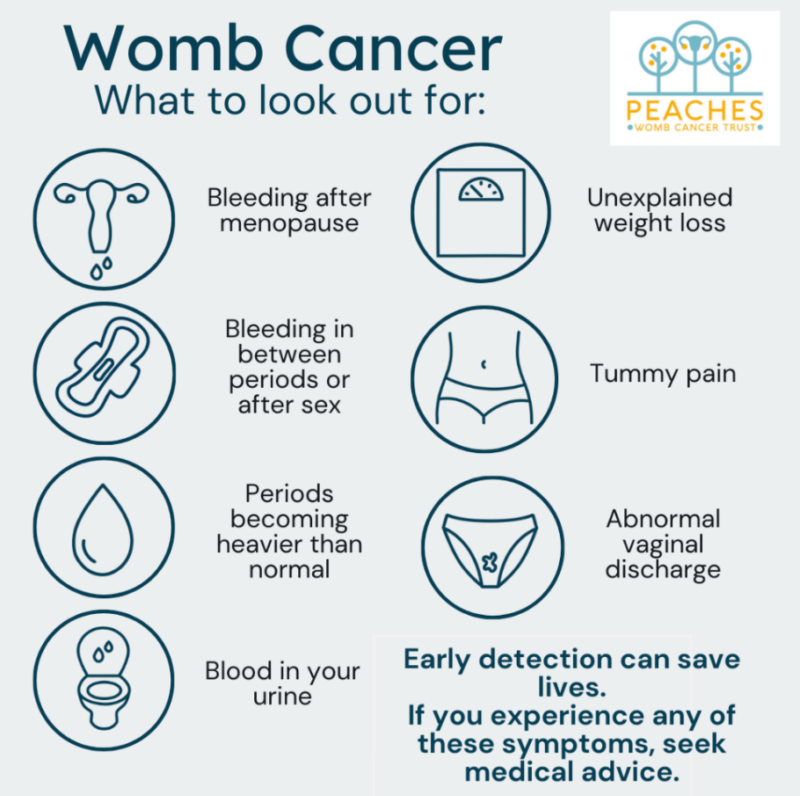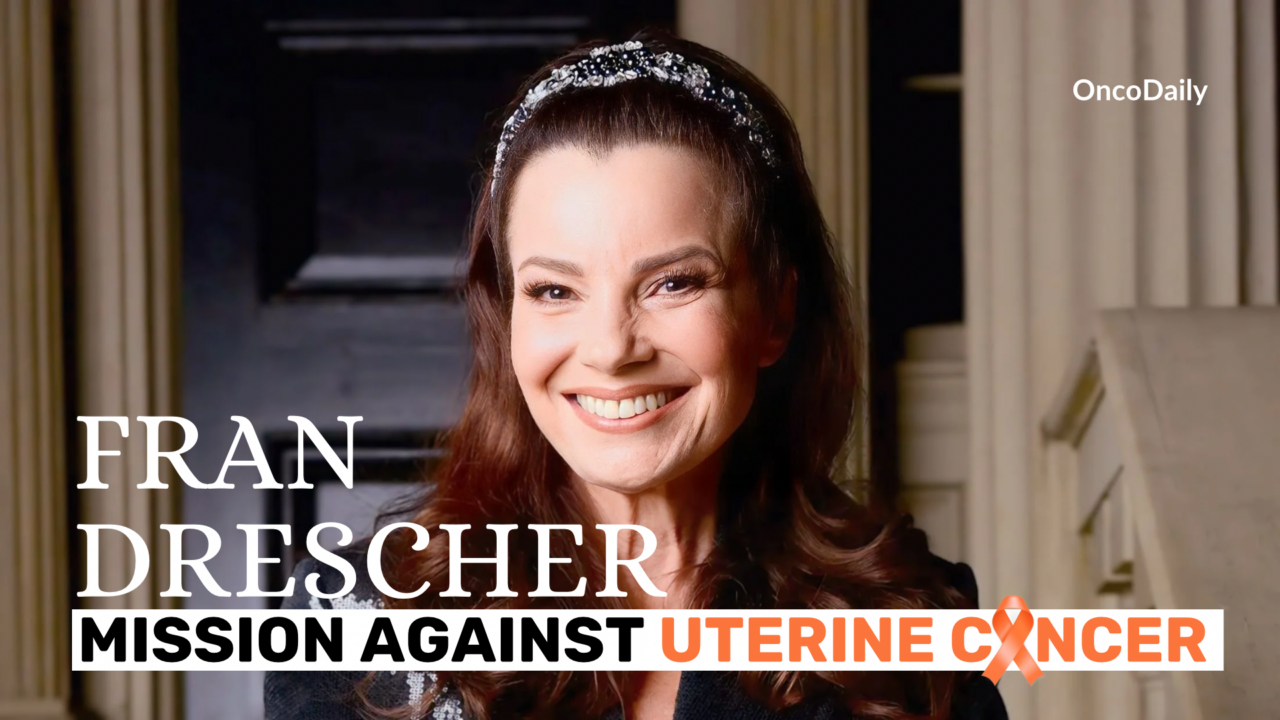Fran Drescher is an acclaimed actress and comedian, best known for her role in the hit sitcom The Nanny. Beyond her entertainment career, who was diagnosis with uterine cancer in 2000. Her personal battle led her to become a prominent voice for cancer awareness, founding the Cancer Schmancer Movement, which focuses on early detection and prevention. Drescher’s advocacy has influenced public awareness significantly; studies show that early detection can improve survival rates by up to 90% for certain cancers (American Cancer Society). Her efforts have spurred discussions on the importance of health screenings and education, highlighting that nearly 70% of women are unaware of the early symptoms of gynecological cancers (U.S. Preventive Services Task Force).

How Did Fran Drescher Get Diagnosed with Uterine Cancer?
Fran Drescher’s diagnosis of uterine cancer in 2000 came after she experienced alarming symptoms, including abnormal bleeding and pelvic pain. Initially dismissing these signs, she later sought medical attention when they persisted. Her experience underscores the critical importance of paying attention to such symptoms and seeking medical advice early.
Symptoms
Fran Drescher’s journey to her uterine cancer diagnosis began with specific symptoms, including abnormal bleeding and pelvic pain. These symptoms are common indicators of uterine cancer and can often be mistaken for less serious conditions such as hormonal changes, fibroids, or even menopause.
Abnormal bleeding, particularly between periods or after menopause, is one of the most significant warning signs. Pelvic pain can also signal underlying issues but is frequently attributed to digestive problems or stress. Because these symptoms can seem benign or related to common health issues, they are often ignored or minimized.
However, recognizing and acting on these signs is crucial. Uterine cancer has a much better prognosis when caught early; therefore, it’s vital for individuals experiencing such symptoms to seek medical advice promptly. Ignoring them can delay diagnosis and treatment, potentially worsening outcomes. Drescher’s experience emphasizes the importance of awareness and vigilance regarding one’s health.

What Were Fran Drescher’s Initial Reactions to Her Diagnosis?
Upon receiving her uterine cancer diagnosis, Fran Drescher experienced a whirlwind of emotions, including fear and disbelief. In interviews, she expressed her initial shock, stating.
“I felt like I had been hit by a truck. It was surreal to hear that I had cancer.”
This profound fear was compounded by concerns about her future and health. Drescher also shared her response to the medical advice she received, noting that she felt empowered to take control of her situation. She said,
“I realized that I had to be my own advocate. I couldn’t just accept what was given to me; I had to ask questions and explore my options.”
As she processed the news, Drescher found strength in her vulnerability. She remarked, “I learned that being open about my fears and experiences not only helped me heal but also connected me with others facing similar battles.” This emotional journey ultimately inspired her advocacy work, allowing her to transform her personal struggle into a powerful message about awareness and early detection.
What was the Prognosis?
Fran Drescher was diagnosed with stage I uterine cancer, indicating that the cancer was localized to the uterus. At this stage, her doctors provided a favorable prognosis, as early treatment typically includes surgery and, in some cases, radiation therapy. The expected outcome for stage I uterine cancer is generally positive, with 5-year survival rates exceeding 90% according to the American Cancer Society.
Early intervention plays a crucial role in improving survival rates. Studies show that when uterine cancer is detected early, the chances of successful treatment increase significantly. For instance, research indicates that 75% of women diagnosed with early-stage uterine cancer will survive for at least 10 years (National Cancer Institute).
What Treatments Did Fran Drescher Undergo?
Fran Drescher’s treatment for uterine cancer primarily involved a total hysterectomy, the surgical removal of her uterus. This was the most effective option for her stage I diagnosis. Post-surgery, Drescher did not require chemotherapy or extensive radiation therapy, allowing her to focus on recovery and advocacy. Her experience underscores the importance of early detection in achieving a positive outcome.
Surgery
Fran Drescher underwent a total hysterectomy, a common treatment for early-stage uterine cancer. This procedure removed her uterus and cervix, eliminating the source of cancer. Recovery took several weeks, during which she experienced both physical healing and emotional adjustment. For many women, including Drescher, this surgery can lead to significant changes, such as early menopause and the end of fertility, which can have profound emotional effects.
Radiation and Hormone Therapy
Although Fran Drescher did not undergo radiation or hormone therapy, these treatments are often used for uterine cancer patients whose cancer has spread or recurred. Radiation helps to destroy any remaining cancer cells after surgery, while hormone therapy is used to slow cancer growth by targeting hormone receptors. Both treatments can come with side effects like fatigue, skin irritation, and hormonal imbalances.
How Did Fran Drescher Overcome Uterine Cancer?
Fran Drescher demonstrated remarkable resilience during her uterine cancer treatment by educating herself, maintaining a hopeful outlook, focusing on physical health through exercise and nutrition, and making lifestyle changes for self-care, while advocating for patients to be their own health advocates and emphasizing the importance of understanding one’s body and seeking second opinions.
Emotional Support from Family and Friends
Her support network surrounded her with love and encouragement, which was vital during such a challenging time. Fran has often shared how her close friends and family rallied around her, providing comfort and companionship.
Anecdotes and Quotes
- Family Bond: Fran has mentioned that her family’s unwavering support helped her feel less isolated. She noted, “Having my family by my side made all the difference; they kept my spirits up when I felt low.”
- Friends’ Encouragement: She recalled moments when friends organized small gatherings to lift her mood, saying, “Those little get-togethers reminded me that life goes on, and I wasn’t alone in this fight.”
- Humor and Love: Fran emphasized that laughter was essential, sharing how friends would visit with silly movies and light-hearted banter, stating, “Laughter truly is the best medicine, and my friends made sure I had plenty of it.”
Mental and Emotional Challenges
Fran Drescher’s uterine cancer diagnosis significantly impacted her psychologically, bringing fears of recurrence and emotional turmoil. To cope, she embraced mindfulness, positive affirmations, and leaned on her strong support network of family and friends.
Coping Strategies
- Mindfulness: Practicing mindfulness helped her manage anxiety.
- Positive Thinking: She used affirmations to counter negative thoughts.
- Support Networks: Friends and family provided emotional encouragement.
Post-diagnosis, Fran reflected on the fragility of life and prioritized self-care, emphasizing the importance of early detection and health advocacy. She described her experience as a wake-up call, stating, “Cancer taught me to embrace life fully and to never take a moment for granted.” This shift led her to find purpose in advocacy, transforming her challenges into a platform for awareness and empowerment.
How Did Advocacy and Public Awareness Help?
Fran Drescher founded the Cancer Schmancer movement in 2007 to advocate for cancer awareness and patient empowerment following her own battle with uterine cancer. The movement aims to educate the public about cancer symptoms and the importance of early detection, promote policy changes for improved healthcare access, and foster community support among survivors.

Drescher at a press conference for the Austrian charity Dancer Against Cancer, 2010
Public Speaking and Advocacy
Fran Drescher has been a powerful advocate for cancer awareness and early detection through various public speaking engagements.
Notable Examples
- Health Conferences: She spoke at the National Women’s Health Summit, emphasizing the importance of education in early detection of gynecological cancers.
- Media Appearances: Fran has shared her journey on shows like The Ellen DeGeneres Show and The Tonight Show, stressing proactive health management.
- TEDx Talks: Her TEDx talk inspired audiences to prioritize their health and advocate for themselves.
Contributions to Public Health Campaigns
- Cancer Schmancer Initiatives: Her movement educates women about cancer symptoms and the need for regular screenings.
- Partnerships: Collaborating with organizations like the American Cancer Society, she has helped raise awareness about women’s cancers.
Legislative Efforts
- Lobbying for Policies: Fran has advocated for legislation to improve access to screenings and treatments.
- Congress Testimony: She has testified before Congress, urging support for cancer research and women’s health programs.
Cancer Schmancer Movement
The Cancer Schmancer movement, founded by Fran Drescher in 2007, focuses on educating the public about early detection and advocating for patient rights, particularly regarding gynecological cancers.
Educational Initiatives
- Awareness Campaigns: Targeting the importance of early detection and regular check-ups.
- Informational Resources: Providing tools to help individuals recognize symptoms and navigate the healthcare system.
Achievements
- Public Engagement: Increased awareness about women’s cancers and health advocacy.
- Legislative Influence: Advocated for better access to screenings and treatments.
Ongoing Initiatives
- Community Events: Connecting survivors and healthcare professionals.
- Partnerships: Collaborating with health organizations to broaden impact.
- Advocacy Campaigns: Focusing on legislative changes to enhance patient rights.
Overall, Cancer Schmancer has significantly advanced public awareness and patient empowerment in the fight against cancer.

What Is Fran Drescher’s Life Like After Uterine Cancer?
After her uterine cancer treatment, Fran Drescher continues to advocate for health issues through her Cancer Schmancer movement, focusing on early detection and patient rights. She successfully returned to acting with a reboot of “The Nanny,” combining her passion for performance with advocacy. Fran balances her career and health commitments by prioritizing self-care and mindfulness, despite ongoing challenges related to her health. Her journey reflects resilience and a dedication to empowering others to prioritize their well-being.
Fran Drescher Health Challenges
Fran Drescher health has faced ongoing challenges from her uterine cancer diagnosis and treatment, including the need for regular screenings to monitor for recurrence, which can induce anxiety, and hormonal changes resulting from her hysterectomy.
To manage these challenges, she incorporates mindfulness and meditation into her routine, emphasizing a balanced diet and regular exercise to support her health. Fran prioritizes self-care, ensuring she listens to her body and takes breaks as needed, and explores holistic practices like yoga and alternative therapies to enhance her well-being. Through these strategies, she continues to navigate her health journey while advocating for others.
Personal Life and Politics
Fran Drescher, best known for her role as the titular character in The Nanny, was born on September 30, 1957, in Queens, New York. She has been married twice, first to Peter Marc Jacobson from 1978 to 1999, and later to businessman Shiva Ayyadurai in 2014, though they divorced in 2016. Drescher is also a cancer survivor, having battled uterine cancer in the early 2000s, an experience that deeply influenced her advocacy work.
Drescher is an outspoken advocate for various causes, including health care reform and women’s rights. She has been active in promoting cancer awareness and education, particularly regarding the importance of early detection. In 2021, she was elected President of the Screen Actors Guild (SAG-AFTRA), where she focuses on workers’ rights and fair pay in the entertainment industry. Her political activism extends to issues like LGBTQ+ rights and environmental protection, reflecting her commitment to social justice and community welfare.
What Causes Uterine Cancer?
Uterine cancer, primarily endometrial cancer, is influenced by genetic, hormonal, and lifestyle factors. Key risks include genetic mutations like those from Lynch syndrome (3-5% of cases) and hormonal imbalances due to prolonged estrogen exposure, especially in obese women who face 2-4 times higher risk (National Cancer Institute, 2023). Lifestyle choices such as poor diet, inactivity, and smoking further increase risk, with smokers having a 50% higher likelihood of developing the disease (Centers for Disease Control and Prevention, 2023). Experts recommend preventive measures, including maintaining a healthy weight, regular exercise, and hormonal contraceptives, which may reduce risk by up to 50% (Journal of Clinical Oncology, 2022). Early detection through gynecological exams is crucial for improving outcomes, underscoring the importance of awareness regarding menstrual and reproductive health.
Genetic and Hormonal Factors
Genetic Factors
- Lynch Syndrome: This hereditary condition increases the risk of endometrial cancer, with women having a 40-60% lifetime risk (American Cancer Society, 2023). A family history of endometrial or related cancers also heightens risk, indicating a genetic predisposition (National Cancer Institute, 2023).
Hormonal Factors
- Estrogen Exposure: Prolonged exposure to unopposed estrogen, especially in obese women, increases risk by 2-4 times (National Cancer Institute, 2023). Conditions like polycystic ovary syndrome (PCOS) can lead to irregular ovulation and heightened estrogen levels.
- Hormonal Replacement Therapy: Estrogen-only hormone replacement therapy after menopause raises the risk, while combined estrogen and progesterone therapy appears to reduce it (Journal of Clinical Oncology, 2022).
Research Insights
Studies indicate that genetic mutations leading to hormonal imbalances can further elevate endometrial cancer risk (American Journal of Obstetrics and Gynecology, 2021). Understanding these factors is essential for assessing individual risk and developing prevention strategies.
Lifestyle and Environmental Factors
Here’s a concise overview of how lifestyle and environmental factors contribute to uterine cancer risk, along with relevant sources:
Lifestyle Choices
- Diet: Diets high in processed foods and low in fruits and vegetables are linked to increased uterine cancer risk. Maintaining a healthy weight is crucial, as obesity can elevate estrogen levels, increasing cancer risk by 2-4 times (National Cancer Institute, 2023).
- Exercise: Regular physical activity helps regulate hormones and maintain a healthy weight, thereby reducing cancer risk (American Cancer Society, 2023).
Environmental Factors
- Chemical Exposure: Exposure to endocrine disruptors found in plastics (e.g., BPA) and pesticides may affect hormonal balance and increase cancer risk (Journal of Clinical Endocrinology & Metabolism, 2021).
Mitigation Tips
- Maintain a Healthy Weight: Focus on a balanced diet rich in whole foods while minimizing processed foods.
- Exercise Regularly: Aim for at least 150 minutes of moderate-intensity exercise per week (CDC, 2023).
- Avoid Hormone Replacement Therapy (HRT) Without Medical Advice: Consult healthcare providers regarding the risks associated with HRT (Mayo Clinic, 2023).
- Reduce Chemical Exposure: Minimize the use of plastic containers and choose organic produce when possible.
By implementing these strategies, individuals can significantly lower their risk of developing uterine cancer.
How Can Uterine Cancer Be Prevented?
Preventive measures for uterine cancer include regular screenings, lifestyle changes, and dietary adjustments. Key recommendations emphasize the importance of pelvic exams and endometrial biopsies for high-risk women, particularly those with a family history (American Cancer Society, 2023). Maintaining a healthy weight is crucial, as obesity significantly increases cancer risk, with a focus on achieving a normal BMI (National Cancer Institute, 2023). Engaging in at least 150 minutes of moderate-intensity exercise weekly is also advised (CDC, 2023). Dietary changes should prioritize a balanced intake of fruits, vegetables, whole grains, and lean proteins while limiting processed foods and sugars (World Health Organization, 2022). By adopting these preventive strategies, individuals can lower their risk of developing uterine cancer and promote overall health.
Regular Screenings and Early Detection
Regular gynecological check-ups and screenings are vital for the early detection of uterine cancer, enabling timely interventions when treatment is most effective. Key components include pelvic exams and screenings like transvaginal ultrasounds or endometrial biopsies, especially for women with known risk factors.
Importance of Early Detection
Awareness of early symptoms is crucial. Key signs include:
- Abnormal Vaginal Bleeding: Bleeding between periods or after menopause.
- Pelvic Pain or Pressure: Persistent discomfort in the pelvic area.
- Unexplained Weight Loss: Sudden weight loss without a clear reason.
Promptly reporting these symptoms to a healthcare provider can lead to early diagnosis, significantly improving treatment outcomes. The American Cancer Society emphasizes that regular check-ups and vigilance about symptoms enhance the chances of successful management of uterine cancer.
Lifestyle Changes
To reduce the risk of uterine cancer, consider implementing the following lifestyle changes, supported by reputable sources:
- Maintain a Healthy Weight: Follow a balanced diet rich in fruits, vegetables, whole grains, and lean proteins while limiting processed foods and sugars (World Health Organization, 2022).
- Exercise Regularly: Aim for at least 150 minutes of moderate-intensity exercise each week, along with strength training twice a week (Centers for Disease Control and Prevention, 2023).
- Avoid HRT Without Medical Guidance: Consult healthcare providers about the risks and benefits of hormone replacement therapy (American Cancer Society, 2023).
- Limit Exposure to Carcinogens: Use glass or stainless steel containers to minimize chemical exposure from plastics and choose organic products when possible (National Institute of Environmental Health Sciences, 2023).
- Practice Healthy Eating Habits: Incorporate healthy fats while limiting saturated and trans fats; stay hydrated and moderate alcohol intake (World Health Organization, 2022).
- Regular Health Check-ups: Schedule gynecological exams to monitor reproductive health and address any concerns promptly (American College of Obstetricians and Gynecologists, 2023).
Dietary Recommendations to Help Prevent Uterine Cancer
- Fruits and Vegetables:
- Cruciferous Vegetables: Broccoli and kale contain compounds that may reduce cancer risk (World Health Organization, 2022).
- Berries: High in antioxidants, berries like blueberries and strawberries combat oxidative stress (American Institute for Cancer Research, 2023).
- Whole Grains:
- Include whole grains like brown rice and quinoa, which are high in fiber and support healthy weight management (National Cancer Institute, 2023).
- Healthy Fats:
- Omega-3 Fatty Acids: Found in fatty fish, walnuts, and flaxseeds, these fats help reduce inflammation (American Heart Association, 2023).
- Legumes and Nuts:
- Beans and lentils provide protein and fiber, promoting satiety and overall health (Harvard T.H. Chan School of Public Health, 2022).
- Low-Fat Dairy:
- Low-fat yogurt and cheese offer calcium and probiotics beneficial for health (National Dairy Council, 2023).
- Herbs and Spices:
- Turmeric: Contains curcumin, which has anti-inflammatory properties (Journal of Nutritional Biochemistry, 2021).
- Garlic: Known for its immune-boosting and potential cancer-fighting abilities (National Cancer Institute, 2023).
Foods to Limit
- Minimize processed foods, added sugars, and red or processed meats, which are linked to increased cancer risk (World Health Organization, 2022).
FAQs
How did Fran Drescher discover she had uterine cancer?
Fran Drescher was diagnosed with uterine cancer in 2000 after experiencing symptoms like abnormal bleeding and pelvic pain. Initially, she was misdiagnosed, which delayed her proper treatment. Her persistence in seeking a correct diagnosis highlights the importance of advocating for your own health.
What type of cancer did Fran Drescher have?
Fran Drescher was diagnosed with stage I uterine cancer, a type of cancer that affects the lining of the uterus. Uterine cancer is one of the most common gynecological cancers and often has a good prognosis when caught early.
Did Fran Drescher have surgery for uterine cancer?
Yes, Fran Drescher underwent a total hysterectomy to treat her uterine cancer. This surgery involved the removal of her uterus and cervix, which is a common treatment for early-stage uterine cancer.
How long did it take for Fran Drescher to get a proper diagnosis?
Fran Drescher spent two years visiting different doctors and receiving misdiagnoses before finally being correctly diagnosed with uterine cancer. Her story emphasizes the importance of second opinions and persistent self-advocacy in healthcare.
How has Fran Drescher’s cancer diagnosis impacted her life?
Fran Drescher’s uterine cancer diagnosis led her to become a prominent advocate for cancer awareness and early detection. She founded the Cancer Schmancer Movement to help others recognize early signs of cancer and navigate their healthcare options effectively.
What is Fran Drescher’s Cancer Schmancer Movement?
The Cancer Schmancer Movement is a nonprofit organization founded by Fran Drescher. It focuses on early cancer detection, and prevention, and advocating for patients to take control of their health. Drescher started the movement after her own experience with uterine cancer.
Is uterine cancer hereditary like other cancers?
While uterine cancer is not always hereditary, some cases are linked to genetic factors such as Lynch syndrome. Fran Drescher has used her platform to raise awareness about the importance of genetic testing and early detection for those at higher risk.
What lifestyle changes did Fran Drescher make after surviving uterine cancer?
After surviving uterine cancer, Fran Drescher adopted a healthier lifestyle, focusing on nutrition, exercise, and stress management. She often speaks about how these changes have helped her maintain her health post-cancer.
How did Fran Drescher cope emotionally after her uterine cancer diagnosis?
Fran Drescher has openly discussed the emotional toll of her uterine cancer diagnosis. She found comfort in her support network of friends and family and channeled her energy into advocacy work, which helped her heal emotionally.
How has Fran Drescher used her platform to raise awareness about uterine cancer?
Fran Drescher has leveraged her fame to raise awareness about uterine cancer through her Cancer Schmancer Movement, public speaking engagements, and media appearances. She advocates for early detection, patient empowerment, and policy changes to improve cancer care.
Where Was Fran Drescher Treated for Uterine Cancer?
Fran Drescher was treated for uterine cancer at Cedars-Sinai Medical Center in Los Angeles, California. The prestigious hospital is known for its world-class oncology care, and Drescher received her surgery and follow-up treatment from leading specialists in the field. She has frequently credited the expertise at Cedars-Sinai for her successful recovery.
Written by Aharon Tsaturyan, MD


